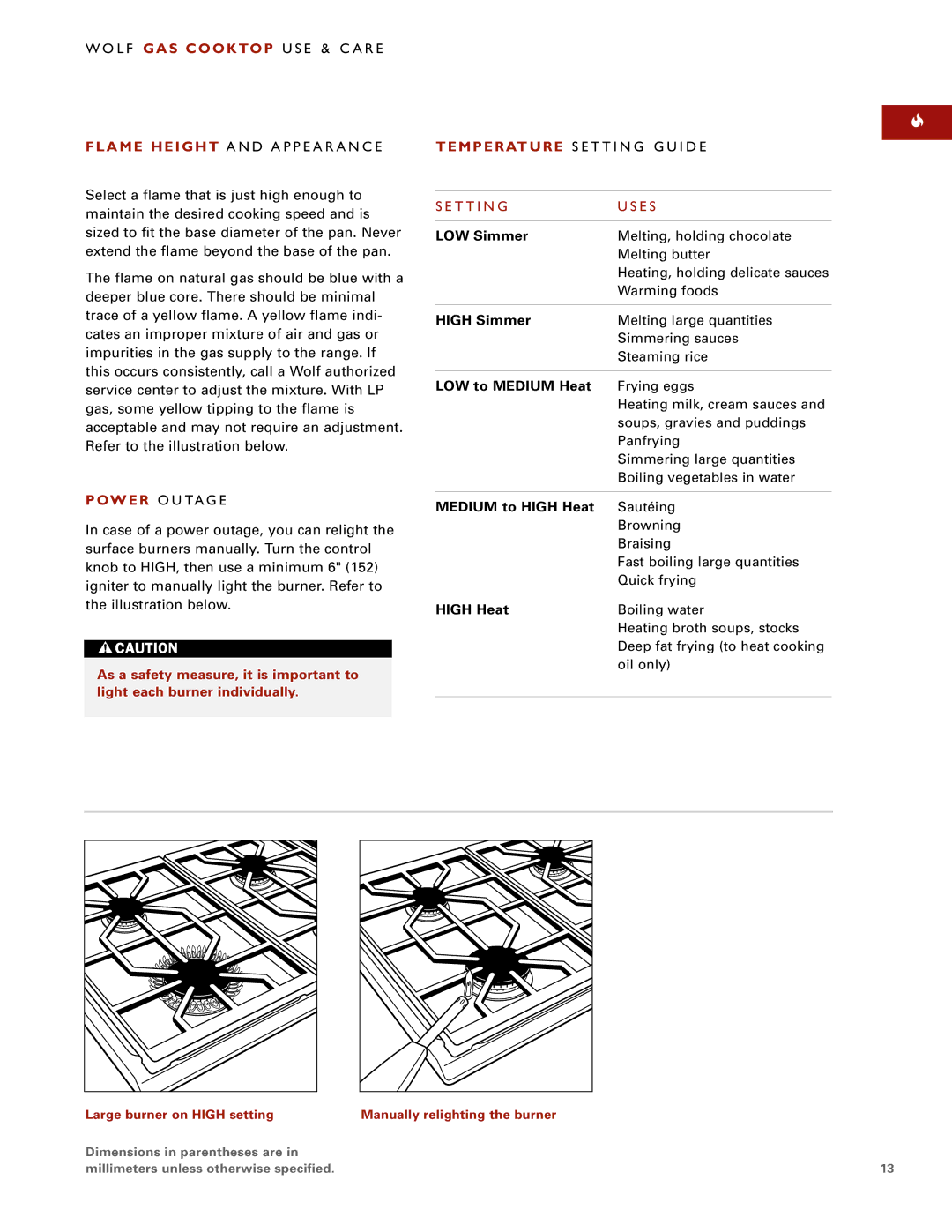
W O L F GAS COOKTOP U S E & C A R E
FLAME HEIGHT A N D A P P E A R A N C E
Select a flame that is just high enough to maintain the desired cooking speed and is sized to fit the base diameter of the pan. Never extend the flame beyond the base of the pan.
The flame on natural gas should be blue with a deeper blue core. There should be minimal trace of a yellow flame. A yellow flame indi- cates an improper mixture of air and gas or impurities in the gas supply to the range. If this occurs consistently, call a Wolf authorized service center to adjust the mixture. With LP gas, some yellow tipping to the flame is acceptable and may not require an adjustment. Refer to the illustration below.
POWER O U TA G E
In case of a power outage, you can relight the surface burners manually. Turn the control knob to HIGH, then use a minimum 6" (152) igniter to manually light the burner. Refer to the illustration below.
As a safety measure, it is important to light each burner individually.
TEMPERATURE S E T T I N G G U I D E
S E T T I N G | U S E S |
|
|
LOW Simmer | Melting, holding chocolate |
| Melting butter |
| Heating, holding delicate sauces |
| Warming foods |
|
|
HIGH Simmer | Melting large quantities |
| Simmering sauces |
| Steaming rice |
|
|
LOW to MEDIUM Heat | Frying eggs |
| Heating milk, cream sauces and |
| soups, gravies and puddings |
| Panfrying |
| Simmering large quantities |
| Boiling vegetables in water |
|
|
MEDIUM to HIGH Heat | Sautéing |
| Browning |
| Braising |
| Fast boiling large quantities |
| Quick frying |
|
|
HIGH Heat | Boiling water |
| Heating broth soups, stocks |
| Deep fat frying (to heat cooking |
| oil only) |
|
|
Large burner on HIGH setting | Manually relighting the burner |
Dimensions in parentheses are in |
|
millimeters unless otherwise specified. | 13 |
